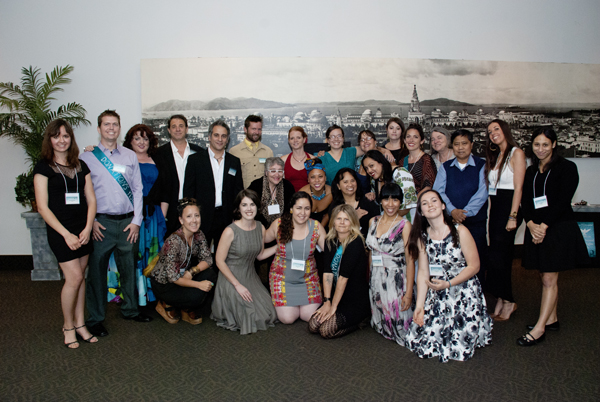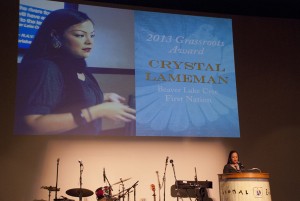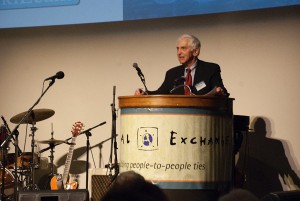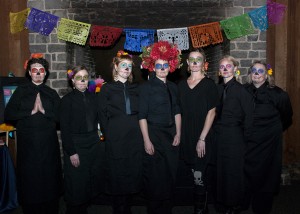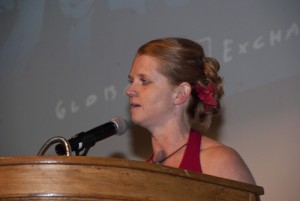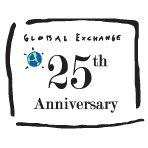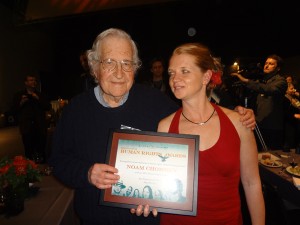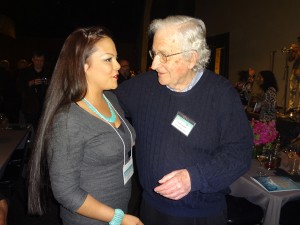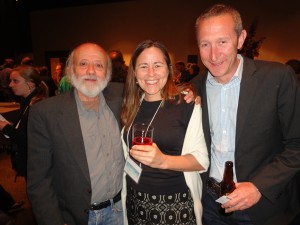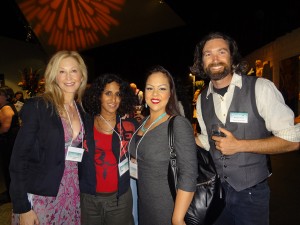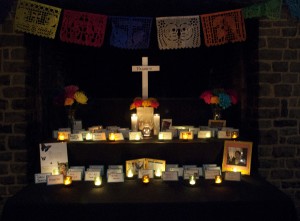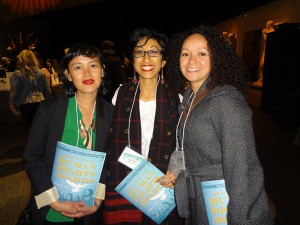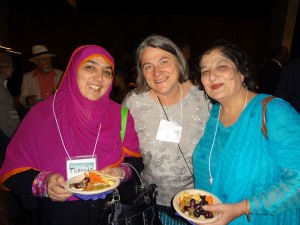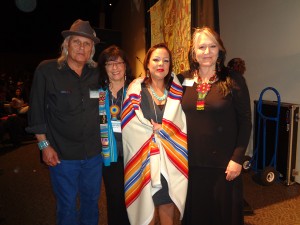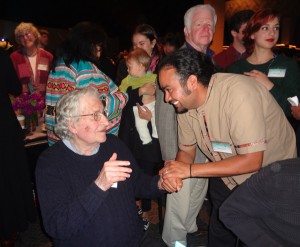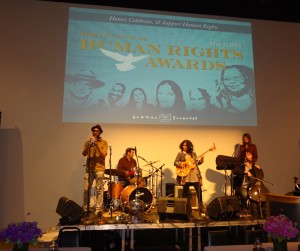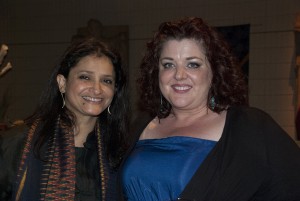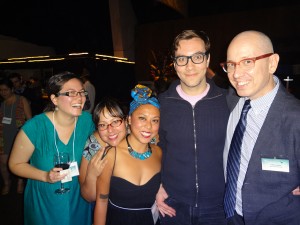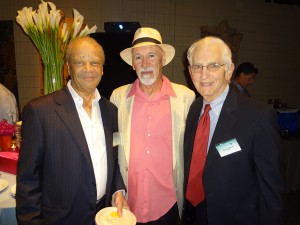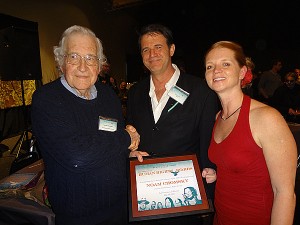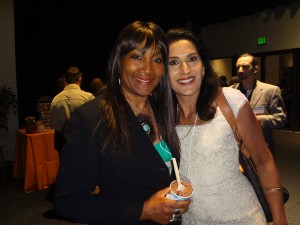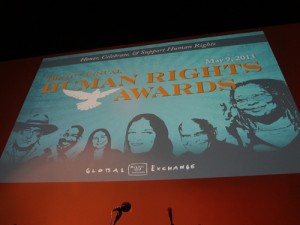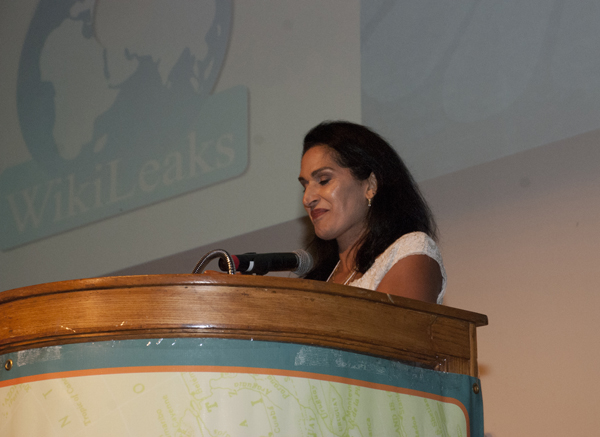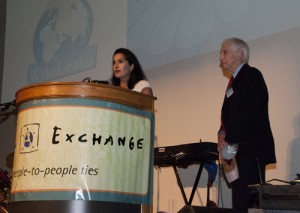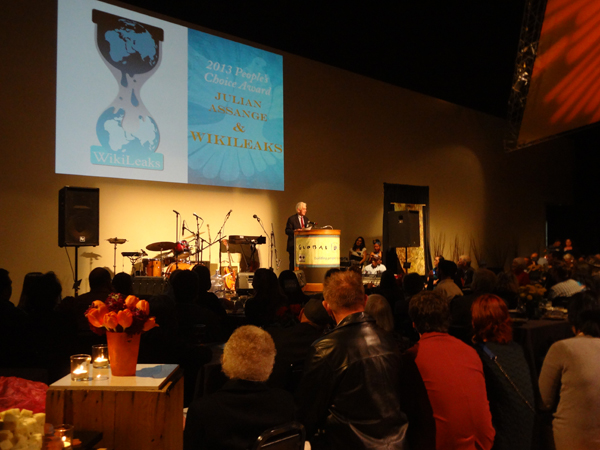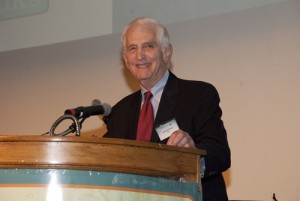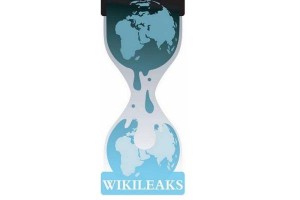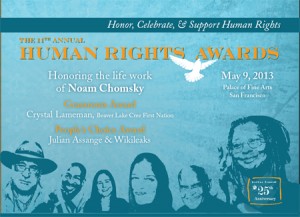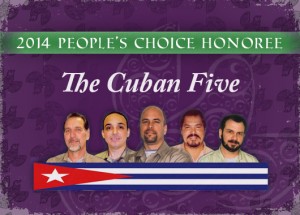 On April 4, 2014, Global Exchange announced the Cuban Five as winners of the 2014 People’s Choice Award.
On April 4, 2014, Global Exchange announced the Cuban Five as winners of the 2014 People’s Choice Award.
This opinion piece was published by the Washington Post on October 4, 2013 by Stephen Kimber, titled “The Cuban Five were fighting terrorism. Why did we put them in jail?”. A required update to this article is that a second member of the Cuban Five, Fernando González, was released on February 27, 2014. Stephen Kimber teaches journalism at the University of King’s College in Halifax, Canada, and is the author of “What Lies Across the Water: The Real Story of the Cuban Five.”
Consider for a moment what would happen if American intelligence agents on the ground in a foreign country uncovered a major terrorist plot, with enough time to prevent it. And then consider how Americans would react if authorities in that country, rather than cooperate with us, arrested and imprisoned the U.S. agents for operating on their soil.
Those agents would be American heroes. The U.S. government would move heaven and Earth to get them back.
This sort of scenario has occurred, except that, in the real-life version, which unfolded 15 years ago last month, the Americans play the role of the foreign government, and Cuba — yes, Fidel Castro’s Cuba — plays the role of the aggrieved United States.
In the early 1990s, after the demise of the Soviet Union made the collapse of Cuba’s communist government seem inevitable, Miami’s militant Cuban exile groups ratcheted up their efforts to overthrow Castro by any means possible, including terrorist attacks. In 1994, for example, Rodolfo Frometa, the leader of an exile group, was nabbed in an FBI sting trying to buy a Stinger missile, a grenade launcher and anti-tank rockets that he said he planned to use to attack Cuba. In 1995, Cuban police arrested two Cuban Americans after they tried to plant a bomb at a resort in Varadero.
Those actions clearly violated U.S. neutrality laws, but America’s justice system mostly looked the other way. Although Frometa was charged, convicted and sentenced to almost four years in jail, law enforcement agencies rarely investigated allegations involving exile militants, and if they did, prosecutors rarely pursued charges. Too often, Florida’s politicians served as apologists for the exile community’s hard-line elements.
But the Cubans had their own agents on the ground in Florida. An intelligence network known as La Red Avispa was dispatched in the early 1990s to infiltrate militant exile groups. It had some successes. Agents thwarted a 1994 plan to set off bombs at the iconic Tropicana nightclub, a tourist hot spot in Havana. And they short-circuited a 1998 scheme to send a boat filled with explosives from the Miami River to the Dominican Republic to be used in an assassination attempt against Castro.
In the spring of 1998, Cuban agents uncovered a plot to blow up an airplane filled with beach-bound tourists from Europe or Latin America. The plot resonated: Before 2001, the most deadly act of air terrorism in the Americas had been the 1976 midair bombing of Cubana Airlines Flight 455, which killed all 73 passengers and crew members.
Castro enlisted his friend, Nobel Prize-winning novelist Gabriel Garcia Marquez, to carry a secret message about the plot to President Bill Clinton. The White House took the threat seriously enough that the Federal Aviation Administration warned airlines.
In June of that year, FBI agents flew to Havana to meet with their Cuban counterparts. During three days in a safe house, the Cubans provided the FBI with evidence their agents had gathered on various plots, including the planned airplane attack and an ongoing campaign of bombings at Havana hotels that had taken the life of an Italian Canadian businessman.
But the FBI never arrested anyone in connection with the airplane plot or the hotel attacks — even after exile militant Luis Posada Carriles bragged about his role in the Havana bombings to the New York Times in July 1998. Instead, on Sept. 12, 1998, a heavily armed FBI SWAT team arrested the members of the Cuban intelligence network in Miami.
The five agents were tried in that hostile-to-anything-Cuban city, convicted on low-bar charges of “conspiracy to commit” everything from espionage to murder and sentenced to impossibly long prison terms, including one double life sentence plus 15 years.
Fifteen years later, four of the Cubans still languish in American prisons.
Now you begin to understand why the Cuban Five — as they have become known — are national heroes in their homeland, why pictures of their younger selves loom on highway billboards all over the island, why every Cuban schoolchild knows them by their first names: Gerardo, René, Ramon, Fernando and Antonio.
State Department spokeswoman Victoria Nuland has stated that the Cuban Five “were all convicted in U.S. courts of committing crimes against the United States, including spying, treason.”
It is true that three of the five men — Antonio Guerrero, Ramon Labañino and Fernando Gonzalez — did have, in part, military missions beyond simply infiltrating and reporting back on the activities of Miami’s exile groups. But their purpose was not to steal America’s military secrets or compromise U.S. security.
During the 1990s, Cuban authorities believed theirs might be the next Caribbean country to face an American military invasion. It wasn’t a stretch when you consider Grenada (1983), Panama (1989) and Haiti (1994). Then, too, there was the growing influence of militantly anti-Castro lobbying groups such as the Cuban American National Foundation, which were pushing Washington to overthrow Castro and his brother.
Based on its assessments of those earlier invasions, Cuban intelligence had developed a checklist of signals that an invasion might be imminent: a sudden influx of combat and reconnaissance aircraft to a southern military base, for example, or unexpected, unexplained visits by military brass to Southern Command headquarters in Miami.
Agents such as Antonio Guerrero — who worked as a janitor at the Boca Chica Naval Air Station in Key West from 1993 until his arrest in 1998 and is serving 22 years in prison — were Cuba’s low-tech equivalents of U.S. spy satellites, counting planes on runways and reporting back to Havana.
Of course, Cuban authorities were eager to vacuum up every tidbit of gossip their agents could find, and Havana occasionally pressured Guerrero to up his game; he responded mostly by sending clippings from base newspapers. No wonder. Guerrero spoke little English and had no security clearance; military secrets were well above his pay grade. And U.S. military secrets were never Cuba’s real priority — it just wanted to know if the Yankees were about to invade.
Seven months after the FBI charged the five with relatively insignificant counts — failing to register as foreign agents, using false identities and, more seriously but less specifically, conspiracy to commit espionage — prosecutors tacked on the charge that would galvanize Cuba’s exile community.
They charged Gerardo Hernandez, the leader of the network, with conspiracy to commit murder in connection with the shootdown three years earlier of two Brothers to the Rescue aircraft.
Brothers to the Rescue, an anti-Castro group that had been rescuing rafters in the Straits of Florida but had lost its raison d’etre after a 1994 immigration deal between Washington and Havana, had been illegally violating Cuban airspace for more than a year, occasionally raining down anti-government leaflets on Havana. The Cubans protested the flights. The U.S. government did its best to prevent further incursions, but the wheels of the FAA bureaucracy ground slowly.
In early 1996, the Cubans sent messages to Washington through various intermediaries, warning that if the United States didn’t stop further Brothers flights, the Cubans would.
Washington didn’t.
So the Cubans did. On the afternoon of Feb. 24, 1996, Cuban fighter jets blew two small, unarmed Brothers to the Rescue aircraft out of the sky, killing all four men aboard.
The Cubans claim that the planes were inside their territory. The U.S. government claims — and the International Civil Aviation Organization agreed — that the planes were in international airspace when they were attacked.
But did Hernandez really know in advance that the Cuban government planned to shoot down those planes? Was he involved in the planning?
My answer is no. During my research for a book on the Cuban Five, I reviewed all 20,000-plus pages of the trial transcript and sifted through thousands of pages of decrypted communications between Havana and its agents. I found no evidence that Hernandez had any knowledge of, or influence on, the events that day.
The evidence instead paints a picture of a Cuban intelligence bureaucracy obsessed with compartmentalizing and controlling information. Hernandez, a field-level illegal intelligence officer, had no need to know what Cuba’s military planned. The messages and instructions from Havana were ambiguous, hardly slam-dunk evidence, particularly for a charge of conspiracy to commit murder.
In one message, for example, Hernandez’s bosses refer to a plan to “perfect the confrontation” with Brothers to the Rescue, which prosecutors insisted meant shooting down the planes.
But as Judge Phyllis A. Kravitch pointed out — in her 2008 dissent from a decision by the U.S. Court of Appeals for the 11th Circuitupholding the murder charge against Hernandez — “There are many ways a country could ‘confront’ foreign aircraft. Forced landings, warning shots, and forced escorted journeys out of a country’s territorial airspace are among them — as are shoot downs.” She said that prosecutors “presented no evidence” to link Hernandez to the shootdown. “I cannot say that a reasonable jury — given all the evidence — could conclude beyond a reasonable doubt that Hernandez agreed to a shoot down,” Kravitch wrote.
A “reasonable jury.” There’s the rub.
By the late 1990s, Miami juries had become so notorious in cases involving Cuban exiles that federal prosecutors in a different case opposed a defense motion for a change of venue from Puerto Rico to Miami for some Cuban exiles accused of plotting to assassinate Castro.
Miami “is a very difficult venue for securing a conviction for so-called freedom fighters,” former U.S. attorney Kendall Coffey explained to the Miami Herald at the time. “I had some convictions, but some acquittals that defied all reason.”
Anti-Cuban militants, in fact, were considered heroes. In 2008, more than 500 Miami exile movers and shakers gathered to honor Posada’s contributions to la causa — as the effort to overthrow Castro is known in the community — at a gala dinner.
His contributions? Besides the Havana hotel attacks (“I sleep like a baby,” he told the New York Times, commenting on the tourist who was killed), Posada is the alleged mastermind of the bombing of Cubana Flight 455. Cuba and Venezuela have asked for his extradition. The United States has refused.
In 2000, Posada was arrested in Panama in connection with a plot to assassinate Castro; he was convicted and served four yearsbefore receiving a still-controversial pardon. That pardon was revoked in 2008.
The closest the U.S. government has come to prosecuting Posada was in 2009, when the Obama administration charged him — not for his role in the Havana bombings but for lying about his role on an immigration form. He was acquitted.
Today, Posada, 85, walks the streets of Miami, a living contradiction in America’s war on terrorism. How to square his freedom with President George W. Bush’s post-Sept. 11 declaration that “any nation that continues to harbor or support terrorism will be regarded by the United States as a hostile regime?” How to square Posada’s freedom with the continued imprisonment of the Cuban Five, whose primary goal was to prevent terrorist attacks?
It is a contradiction Americans should consider.
This opinion piece was re-posted from the Washington Post.
 While Latin America has paid a heavy price for implementing interventionist drug policies, the devastating effects of prohibition are not unique to the region. In the United States, over 2.2 million people are currently incarcerated and 80% of those in federal prisons for drug offenses are black or Latino. Drug law violations have been the main driver of new admissions to prison for decades and while federal and state governments have spent $1 trillion on the drug war in the past 40 years, federal assistance for harm reduction initiatives, such as syringe access programs that would help tackle the upsurge in opioid overdoses, has been nonexistent.
While Latin America has paid a heavy price for implementing interventionist drug policies, the devastating effects of prohibition are not unique to the region. In the United States, over 2.2 million people are currently incarcerated and 80% of those in federal prisons for drug offenses are black or Latino. Drug law violations have been the main driver of new admissions to prison for decades and while federal and state governments have spent $1 trillion on the drug war in the past 40 years, federal assistance for harm reduction initiatives, such as syringe access programs that would help tackle the upsurge in opioid overdoses, has been nonexistent.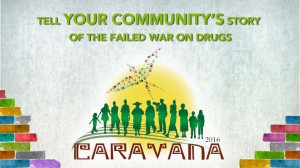


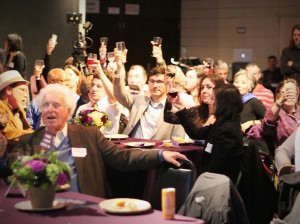

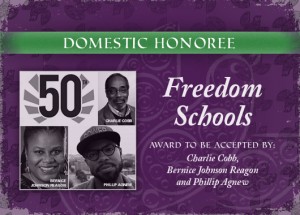
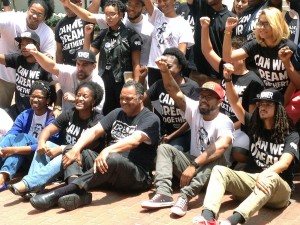
 On April 4, 2014, Global Exchange announced the Cuban Five as winners of the
On April 4, 2014, Global Exchange announced the Cuban Five as winners of the 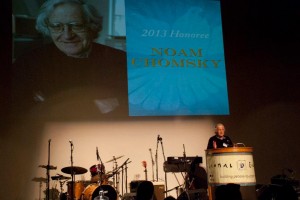
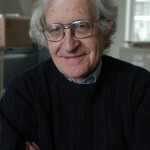 Human Rights Award: Global Exchange honored the life work of political critic and activist, Noam Chomsky. Randall Wallace, of the Wallace Action Fund, introduced Prof. Chomsky.
Human Rights Award: Global Exchange honored the life work of political critic and activist, Noam Chomsky. Randall Wallace, of the Wallace Action Fund, introduced Prof. Chomsky.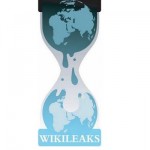
 Grassroots Award: Crystal Lameman received the Grassroots award. She was introduced by Global Exchange Executive Director Carleen Pickard.
Grassroots Award: Crystal Lameman received the Grassroots award. She was introduced by Global Exchange Executive Director Carleen Pickard. TAKE ACTION!
TAKE ACTION!